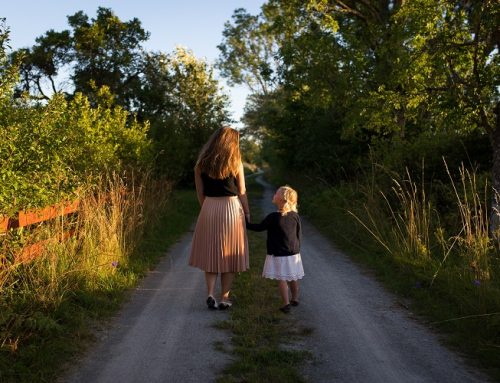Children are sponges. Research has proven it, and we know this by experience. We all have songs, chants, and facts we learned as children that are forever imprinted on our brains. As faulty as our memories become as we age, those imprints from youth remain. This is why catechism is such a powerful tool for our children’s instruction!
What imprints do you want your children to take into adulthood? For our family, the most important thing we want our children to carry into adulthood is God’s word. We learn this through two methods. First, we learn through Biblical Theology: God’s story of redemption as told in the Bible from creation, fall, and redemption to glory. This we study primarily using book-by-book Bible studies and Scripture memory. Second, we learn through Systematic Theology: a coherent, systematic method of learning and understanding categories and specifics of Christian doctrine. This we study primarily through catechism.
Now, if the word catechism sounds strange, unfamiliar, or something that’s only found in other religions, let me assure you it is not. Catechism simply put is “oral instruction.” Christian Catechism is an oral, systematic summary of Biblical doctrine that has been used for centuries to help Christians know and understand what the Bible says systematically. I like to define it as giving us categories for doctrine.
Our family has been studying the Westminster Shorter Catechism for several years with our own children, and it is intensely practical! Our children had the privilege of attending Awana at a local church this past year where they discussed the Trinity. When one of my son’s teachers began to use an analogy to explain the Trinity, my son politely raised his hand and discussed with his teacher that all analogies fall short because there is no thing on earth that can explain exactly what God is like. God is holy. He is other-than. While in that moment my son could point out what the Trinity is not, he couldn’t clearly state what the Trinity is. Amidst our follow up discussions, we watched a satire video that refuted different Trinitarian analogies. At the end of the video, they gave a succinct definition of the Trinity and my son said, “I need to memorize that!” to which I replied, “You already have!”
I proceeded to ask him Question 6 of the Westminster Shorter Catechism:
Q6: How many persons are there in the Godhead?
To which he replied:
A: There are three persons in the Godhead; the Father, the Son, and the Holy Ghost; and these three are one God, the same in substance, equal in power and glory.
Because he had these questions and answers memorized, he was able to go back to Awana that next week and engage in a polite, meaningful conversation with his teacher about the Trinitarian nature of God.
Besides the command to actively teach doctrine to our children, as our kids grow, they begin to ask hard questions. How can I have hope? Who am I and how can I fit in? What is my purpose? If God is good, why is there evil in the world? I don’t want to shy away or be afraid of these hard questions, but want to be able to explain the truth of the world to them. Learning catechism is a way for us to lay the groundwork for these conversations. It is a way for us to obey the command in 1 Peter 3:15 to “honor Christ the Lord as holy, always being prepared to make a defense to anyone who asks you for a reason for the hope that is in you…”
When we first began, I did not understand how significance of catechism memory. But as we have studied, as my husband and I have learned these questions and answers along with our children, we have seen what a gift we have from our church fathers who poured through Scripture and labored through these doctrines that we might be guarded from error. Catechisms are so important not only for our kids, but for all of us! Over and over we come back to them to help us understand very practical Biblical doctrine and life issues.
For further information and reason why you (and your children) should study catechism, please listen to this excellent sermon by Pastor Josh Bales.
Practically, learning catechisms can work out several ways in your home. You can incorporate it into Family Worship or into your Circle Time. You can pick a meal time to review questions. Write them on a chalkboard. Make a catechism book. Buy a catechism book. There are so many options!
Our family incorporates catechism study into our Circle Time. Each week we study a new question. I ask the kids a question, and they repeat it along with the answer. We learn (or make up) sign language to go along with it because it makes it fun and more interactive for them, and we listen to the song that corresponds to the week’s question (find them free on YouTube – look for Holly Dutton Catechism Songs). When the kids were young, that was all we did. Now that they are older, I also read the day’s short devotional excerpt from Starr Meade’s book Training Hearts, Teaching Minds, and we talk about it. If you have older children or are an adult studying the catechisms, I would recommend The Westminster Shorter Catechism by GI Williamson. (More resources to come at the end of this Blog series.)
It really is not complicated and only takes a few minutes a day. But those few minutes a day are a precious, priceless treasure you can give your children (and yourself) that will have immense and eternal returns on investment.





